Spiritual education of the young
Within the Bahá’í community there is a strong culture of learning among all age groups. Bahá’ís believe that everyone has the right and duty to investigate spiritual truth for themselves.
That process of learning is a life-long journey for each individual, no matter what level of education or ability he or she has. This journey starts in the family and is supported by children’s classes, open to all, for the spiritual and moral education of children. This is followed by groups for young teenagers and youth, with a focus on building capacities for service to the community.
In these activities, no distinction is made between Bahá’ís, peoples of other faiths, and those who follow no particular faith or religion. All are welcome to join and to contribute.
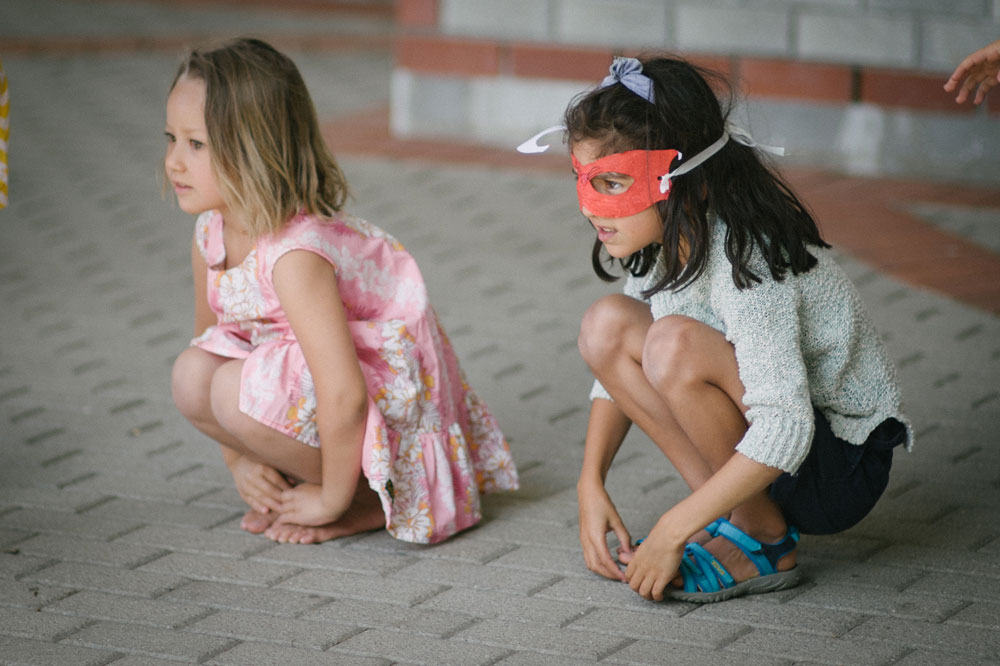
Children's Classes
Of all our treasures, the most precious are our children! ‘Abdu’l-Bahá wrote: “Every child is potentially the light of the world—and at the same time its darkness; wherefore must the question of education be accounted as of primary importance.”
Bahá'í communities around New Zealand run regular classes that are open to children of all backgrounds and are often run in collaboration with their families. Drawing on the teachings of the Bahá’í Faith, the classes aim to inspire in children a love for all the great religions in the world.
Children learn about applying spiritual principles – such as love, unity and kindness – to their own lives, to their families and their friends.
These classes include short lessons, activities to build social skills and friendships, games, stories, art and music.
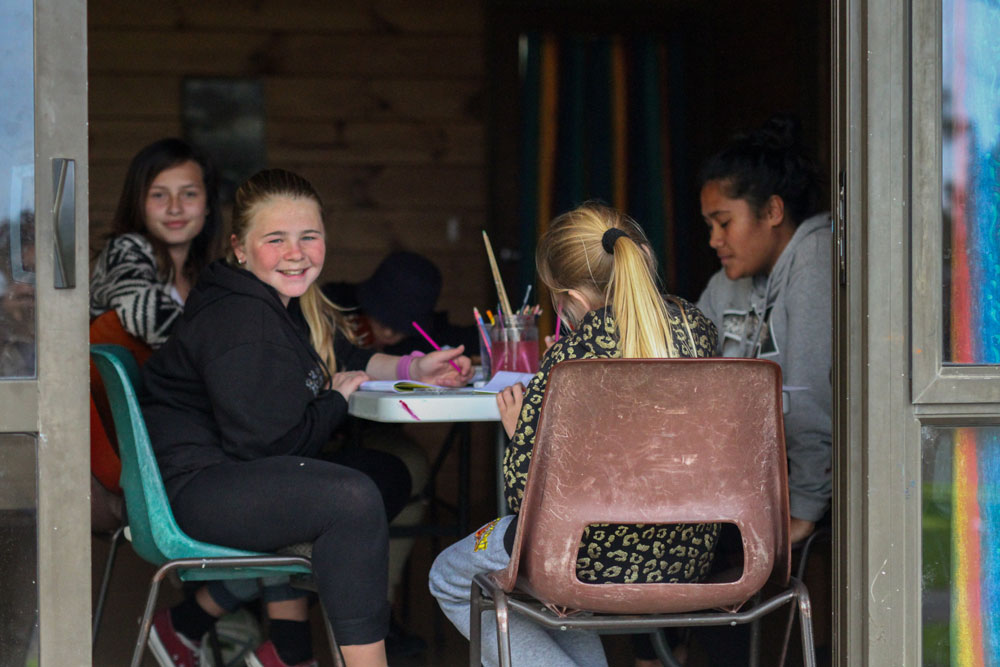
Groups for young teenagers
The Junior Youth Empowerment Programme for young teenagers aged 12 to 15 years is a global initiative aimed at equipping young people with the ability to recognise the positive and negative forces in society, and to channel their energies towards becoming agents of constructive change in the world.
The programme is founded on the belief that the early adolescent years are particularly powerful and many young people want to contribute to the construction of a better world.
Group members meet on a weekly basis to develop their intellectual and spiritual capabilities, and to carry out service projects in their communities. The programme also includes sports, music and arts.
All young people are welcome to participate and older youth can be trained to run the groups, too.
“The religion of God and His divine law are the most potent instruments and the surest of all means for the dawning of the light of unity amongst men.”Bahá'u'lláh
Devotional life
Prayer and meditation are fundamental aspects of a healthy spiritual life. Together, these practices develop spirituality and mindfulness, and allow us to reflect on our higher purpose. The Bahá’í writings tell us: “There is nothing sweeter in the world of existence than prayer…The most blessed condition is the condition of prayer and supplication.”.
In the Bahá’í Faith, prayer is not about merely reciting a list of personal wishes. Rather, prayer is a means for drawing nearer to God. It helps us develop a radiant confidence and gives us strength to overcome difficulties.
The daily practice of prayer provides a natural opportunity to meditate on profound concepts and to reflect on how they might be applied to one’s own life and character, so that we can play a part in the progress of society.
Devotional gatherings, held in homes and Bahá’í centres all over New Zealand, are a space for people of diverse cultures and beliefs to worship, pray and meditate together. These gatherings often include readings and prayers from other Faiths and are open to all. For many, these devotional gatherings provide an opportunity for reflection and inspiration.
E te tama a te Mauri! Ko koe Tāku rama, kei roto Tōku mārama i a koe. Kapohia mai i reira tō māramatanga, kimihia mai tēnei i a Au anake. Nāku koe i hanga kia whai rawa, ā, kua raua nuitia Tāku manako ki runga i a koe.Bahá'u'lláh
Learning to serve our communities
Bahá’ís strive to contribute to the material and spiritual wellbeing of the wider community.
To build capacity to contribute more effectively, they organise and attend study circles which are open to people of all faiths and background. Study circles assist participants to deepen their understanding of the Bahá’í teachings, and to gain the spiritual insights and practical skills they need to carry out the work of the community. In response to the materials they study, participants arise to carry out specific acts of service. Closely related are the efforts of Bahá’ís to contribute to the public welfare at the level of thought through participation in the discourses of society.
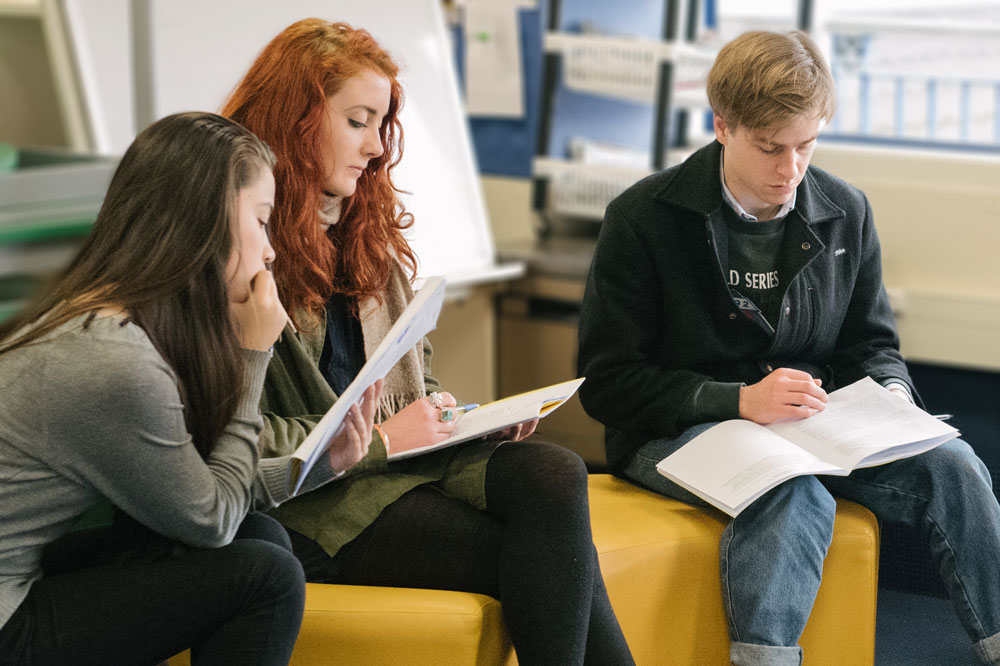
Study Circles
Study circles have been created to develop capacity in young people and adults to offer service to their communities as a result of exploring spiritual concepts and how to apply them to everyday life.
Participants of study circles use materials for their collective study on themes like prayer, life after death, and service to mankind. This remarkable educational programme is perhaps the most widespread, but it is more than just study circles—it also encompasses action and service to the community. Bahá’ís in New Zealand along with their friends, co-workers, and neighbours join millions of others in more than 180 countries who are also taking part in this programme.
Women and men, young and old alike, in Aotearoa New Zealand are warmly invited to participate in one of the study circles that are organised in local communities throughout the country.
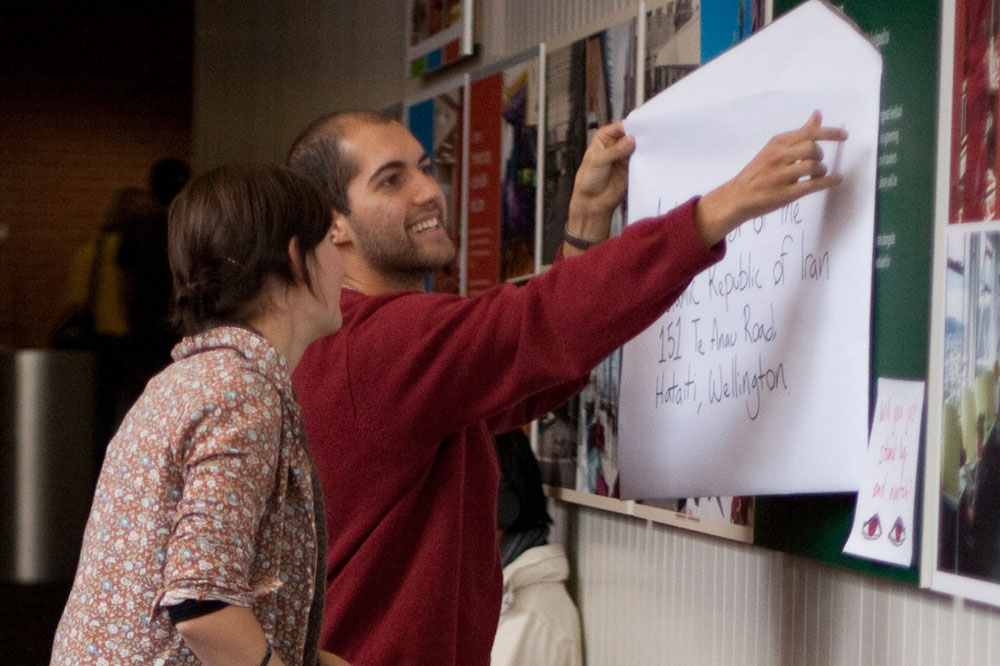
Contributing to Public Discourse
The Bahá’í community is learning how to contribute to discussions on issues facing New Zealand. Bahá'u'lláh's teachings are relevant to many challenges we face as a country such as fostering unity between culturally diverse peoples; advancing towards equality between women and men; and the need to rebalance the economy to eliminate extremes of wealth and poverty.
Individual members of the Bahá’í community—whether through their involvement in the life of the local community, their efforts of social action, or in the course of their studies, occupations, or professional activities—strive to participate fruitfully in such discourses, learning with and from others and offering their personal insights, informed by the Bahá’í teachings, to the unfolding discussions. Bahá’í-inspired agencies also contribute to discourses associated with aspects of social and economic development relevant to their work.
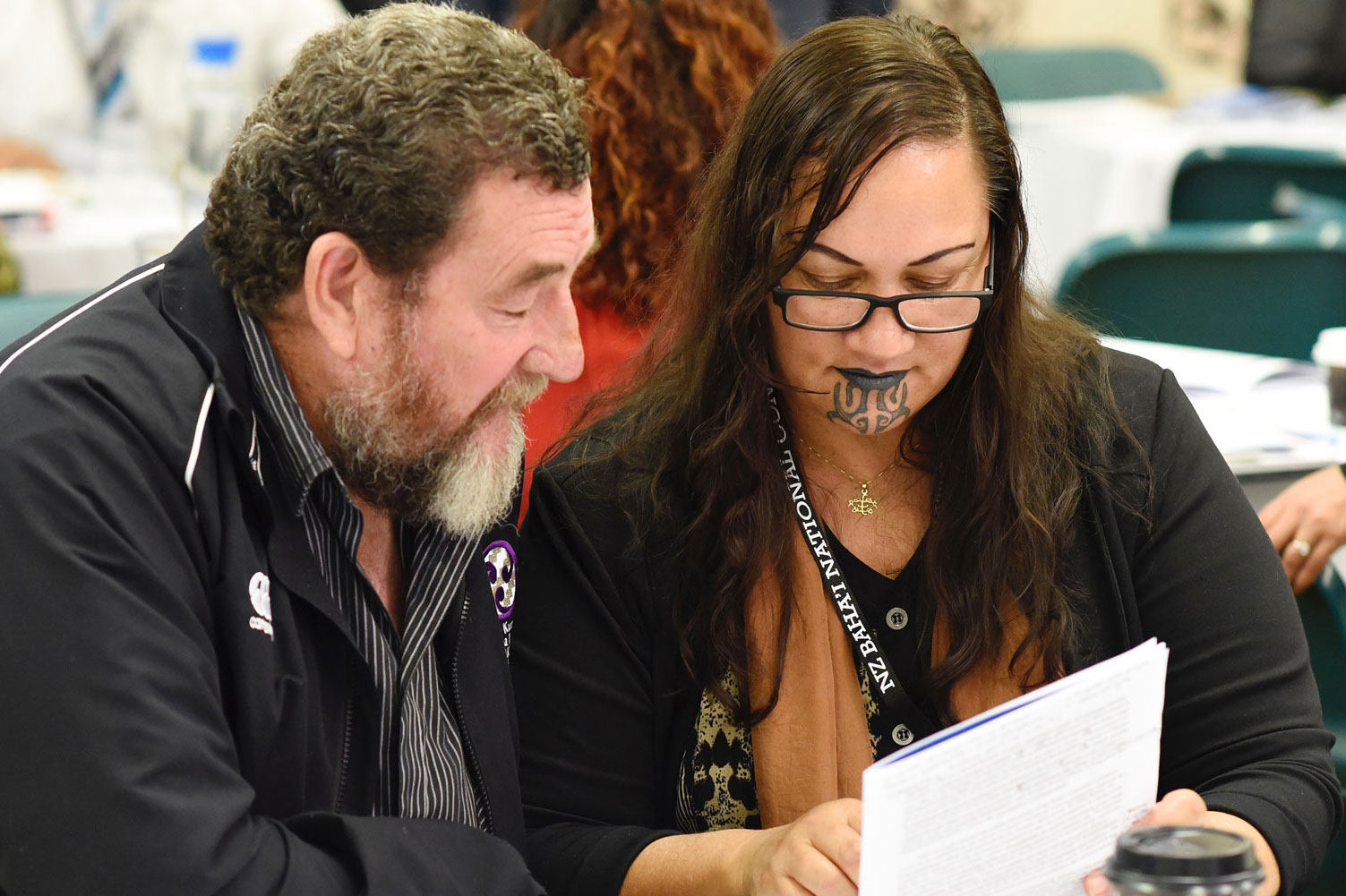
Ethnic Diversity and Race Unity
One area of focus for the New Zealand Bahá’í community is learning about fostering unity between culturally diverse peoples. The principles of racial equality and unity are central to the Bahá'í teachings. The elimination of racial prejudice is essential to peace, prosperity and the well-being of humankind. Bahá'u'lláh wrote:
“Ye are the fruits of one tree, and the leaves of one branch. Deal ye one with another with the utmost love and harmony, with friendliness and fellowship. He Who is the Daystar of Truth beareth Me witness! So powerful is the light of unity that it can illuminate the whole earth.”
For many years the New Zealand Bahá’í community has been active in promoting positive race relations, partnering with the NZ Police and the Human Rights Commission. The Bahá’í community was instrumental in the establishment of Race Relations Day as an annual celebration, observed on 21 March each year.
In 2001 the New Zealand Bahá’í community initiated and organised the Race Unity Speech Awards in support of Race Relations Day. Initially held in Auckland, the competition has now spread to many cities and towns around the country.
